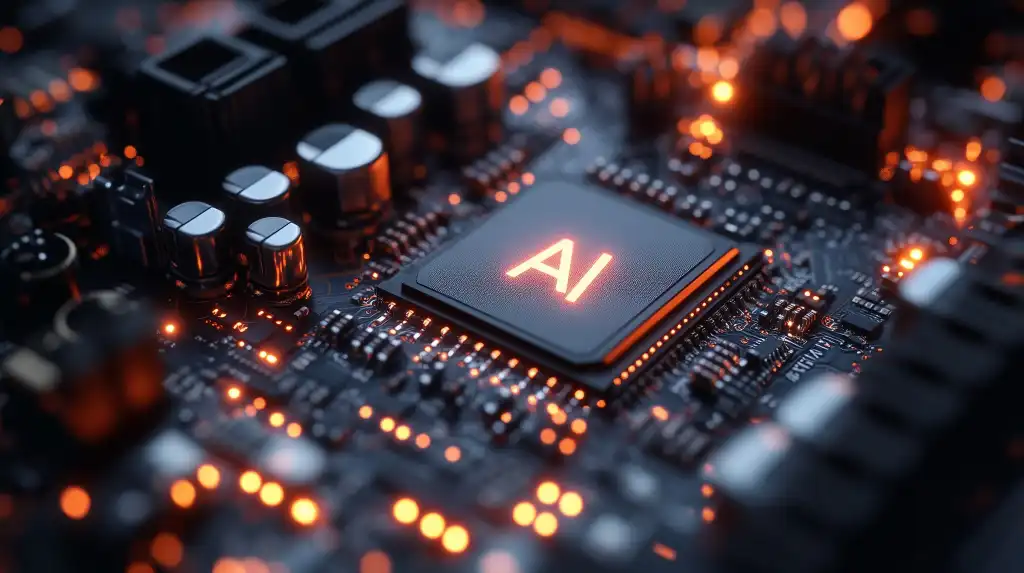Since that big ChatGPT moment, the surge in AI advancement has been relentless and has started an AI Hardware Revolution. With all the big players wanting to get a chunk of this lucrative market, and new players developing AI hardware alternatives, it will be interesting to see what holds in the future. Before we see the major vendors lets briefly discuss about AI chips. Also, if you want to get a snapshot at the scale at which AI has developed in the past 2-3 yrs, here’s a brief timeline of the AI Evolution
Artificial Intelligence, aka AI chips are computer microchips designed and built specifically for handling AI tasks like Machine Learning, Data Analysis and Natural Language Processing (NLP).
Since AI tasks require challenging computing environments, AI chips with its many kinds are made to fulfill these requirements. Popular AI chips include Graphics Processing Units (GPUs), Field Programmable Gate Arrays (FPGAs) and Application-Specific Integrated Circuits (ASICs). Some of these chips may not be designed only for AI tasks, however since they are capable of handling advanced applications, these are ideal for use in AI workloads.
1. NVIDIA
When it comes to AI hardware NVIDIA has ceased the advantage by becoming the hardware of choice, with its stock gaining exponentially since ChatGPT got introduced. Founded in 1993 and currently headed by their dynamic CEO Jensen Huang, NVIDIA is the market leader in GPUs and AI hardware, pioneering CUDA for general purpose GPU computing. It dominates the AI training workloads and has gained over 70% market share since the ChatGPT boom.
2. AMD (Advanced Micro Devices)
AMD was founded in 1969 by Jerry Sanders and a group of other Technology professionals. AMD is strong in adaptive computing through its FPGAs but lags behind NVIDIA in software ecosystems for AI.
3. Intel
Founded in 1968 by semiconductor pioneers Gordon Moore and Robert Noyce, Intel has generally been playing catch up in the AI training hardware. It has a wide portfolio and with it’s Gaudi2 accelerators has been making strides in the AI inference workloads.
4. Google (Alphabet)
Although the Company Google which later became Alphabet was started in 1998, they started producing the hardware for AI after 2015. Their Tensor Processing Units (TPUs) dominate Google’s internal AI workloads and are part of the infrastructure that supports its cloud services.
5. Amazon
Founded in 1994, Amazon’s main AI hardware products are AWS inferentia and Trainium chips. These chips are custom designed to reduce costs for AWS customers. Amazon lacks NVIDIA’s ecosystem but is gaining traction in cost conscious AI workloads.
Other than these billion dollars companies, there are also relatively new companies which have come up with AI focus
6. Cerebras Systems
Started in 2016, they are known for creating the largest AI chips, Wafer-Scale Engine (WFE) which are optimized for massive parallelism in AI model training.
7. Graphcore
This was also founded in 2016 with it’s core product being Intelligent Processing Units (IPUs). These are efficient at AI model training and emphasize on high parallelism and flexibility.
8. Tenstorrent
This is another company that started in 2016 and is currently headed by industry veteran and legendary CPU designer (worked at Apple, AMD, Tesla, and Intel) and early angel investor Jim Keller. Tenstorrent Combines open-source RISC-V architecture with AI-specific accelerators.
Apart from these, there are others like Mythic AI that’s building Analog AI chips, Brainchip that designs low power AI inference inspired by the human brain, Tesla and also OpenAI. Over the past 5 years the AI hardware revolution has seen over 100 such firms come up many of whom have now even shut shop realizing that NVIDIA technology for data center AI is just too tough to beat.
Read more here, to get detailed information about AI Chip makers


